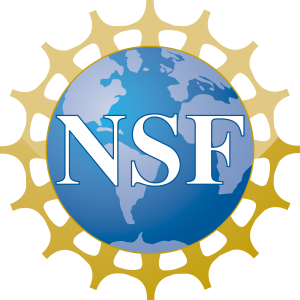 On April 2, 2013, President Obama launched the Brain Research though Advancing Innovative Neurotechnologies (BRAIN) Initiative as a bold new research effort to revolutionize our understanding of the human mind and uncover new ways to treat, prevent, and cure brain disorders. The initiative is a joint program with funding through the Defense Advanced Research Projects Agency (DARPA), the National Institutes of Health (NIH), and the National Science Foundation (NSF). In December 2014, in conjunction with the NSF, the Computing Community Consortium (CCC) held a workshop to bring together the Neuroscience and Computer Science communities to help create breakthrough technologies as a part of the BRAIN Initiative. Then in January of 2016, the CCC was invited to come to NSF and present on the workshop and the resulting report.
On April 2, 2013, President Obama launched the Brain Research though Advancing Innovative Neurotechnologies (BRAIN) Initiative as a bold new research effort to revolutionize our understanding of the human mind and uncover new ways to treat, prevent, and cure brain disorders. The initiative is a joint program with funding through the Defense Advanced Research Projects Agency (DARPA), the National Institutes of Health (NIH), and the National Science Foundation (NSF). In December 2014, in conjunction with the NSF, the Computing Community Consortium (CCC) held a workshop to bring together the Neuroscience and Computer Science communities to help create breakthrough technologies as a part of the BRAIN Initiative. Then in January of 2016, the CCC was invited to come to NSF and present on the workshop and the resulting report.
On February 19, 2016, the NSF issued the following letter to the community announcing the intention of fostering the development of a National Brain Observatory. This multi-directorate effort is part of the NSF’s Understanding the Brain activity, which includes the BRAIN Initiative.
Dear Colleagues:
With this Dear Colleague Letter (DCL), the National Science Foundation (NSF) is announcing the intention to foster the development of a national research infrastructure for neuroscience (National Brain Observatory) to support collaborative and team science for achieving a comprehensive understanding of the brain in action and context. Understanding the brain is one of the grand scientific challenges at the intersection of experimental, theoretical, and computational investigation in the biological, physical, social and behavioral sciences, education research, and engineering. Achieving a comprehensive understanding of the brain requires increased emphasis on systematic, multidisciplinary collaboration and team science to establish quantitative and predictive theories of brain structure and function that span levels of organization, spatial scales of study, and the diversity of species. This challenge necessitates the development of innovative, accessible, and shared capabilities, resources and cyberinfrastructure, along with the eventual organizing of these into a coherent national infrastructure for neuroscience research.
Large-scale collaborative efforts facilitated by shared instrumentation, communication, data representation, and workflow systems, and advanced computational and data resources have enabled transformative discoveries across the spectrum of scientific disciplines. In neuroscience, rapid proliferation of advanced measurement instrumentation and techniques has allowed researchers to study the brain, nervous system, cognition, and behavior at ever-finer physical and temporal scales, and generate very large datasets. However, integrative efforts in neuroscience research are hampered by a lack of systematic means for encouraging maximal utilization of existing resources, and for developing and disseminating new resources that can serve whole disciplines in collecting, managing, and analyzing large-scale data, and comparing those data to theoretical and computational models.
This multi-directorate effort is part of the NSF’s Understanding the Brain activity, including NSF’s participation in the Brain Research through Advancing Innovative Neurotechnologies (BRAIN) Initiative (http://www.nsf.gov/brain/) and the National Brain Observatory (NBO) effort.
This effort will be realized through a phased approach that:
- Fosters development and dissemination/deployment of innovative research resources and instrumentation, neurotechnologies and behavioral paradigms that can be applied across the phylogenetic spectrum, theoretical and computational frameworks, and data infrastructure resources while providing greater access to existing resources where possible and serving broad communities within the brain sciences;
- Supports collaborative networks composed of neuroscientists, behavioral scientists, and theorists working in concert with technology and cyberinfrastructure developers on a common question or theme from a variety of perspectives; and
- Facilitates the emergence of a coherent national infrastructure comprising the above shared and accessible tools, resources and networks that will allow rapid integration, analysis, and modeling of brain data associated with behaviors from multi-disciplinary projects and enable large-scale collaborative research efforts nationally and internationally that will advance our understanding of brain structure and function.
NSF plans to continue to release Dear Colleague Letters and Solicitations with refined guidance and specific funding opportunities aligned with each of the three phases described above, as this campaign continues into the future. NSF anticipates that this initiative will usher in a new frontier of brain exploration by empowering research communities to cooperatively collect, share, analyze, and model data across molecular, cellular, organismal, developmental, behavioral and evolutionary levels in order to reveal the fundamental principles of nervous system function and complex behavior. If you have questions concerning this DCL, please contact a program officer representing the program or solicitation of interest.
Sincerely,
James L. Olds
Assistant Director for Biological Sciences
James Kurose
Assistant Director for Computer & Information Science & Engineering
Joan Ferrini-Mundy
Assistant Director for Education and Human Resources
Pramod Khargonekar
Assistant Director for Engineering
F. Fleming Crim
Assistant Director for Mathematical and Physical Sciences
Fay Cook
Assistant Director for Social, Behavioral, & Economic Sciences









